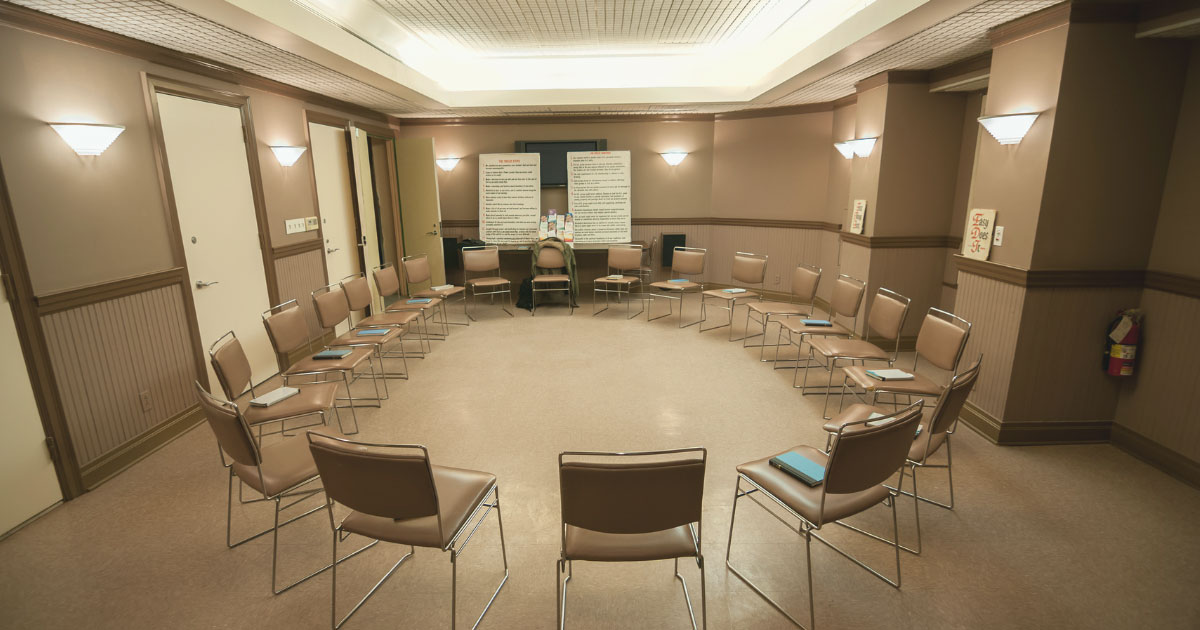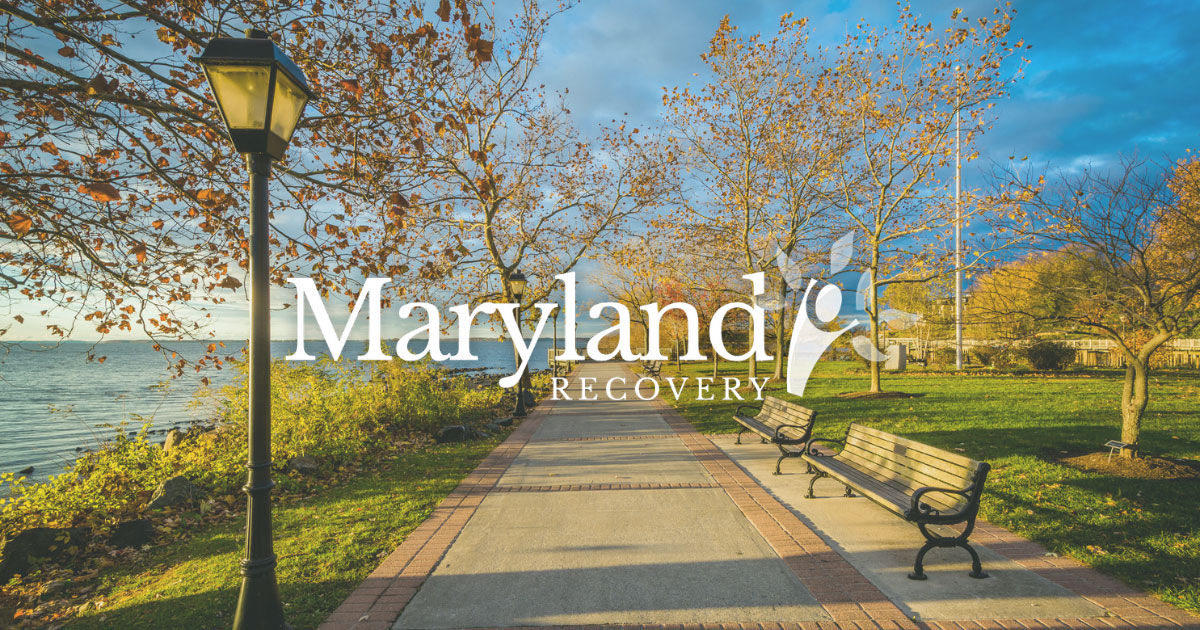
Taking that first step in admitting you have a problem with substances – and the second step of asking for help – can be both the most difficult yet most rewarding decisions you can make in your life. Addiction, also known as substance use disorder (SUD), can negatively impact your relationships, your physical and mental health, and almost every other aspect of your life. Unfortunately, activities and events you may have enjoyed previously may seem impossible to do with SUD, and you may even believe you won’t ever enjoy anything again as a result of the way your relationship with substances has changed your life. However, it’s important to recognize that there is always hope.
Maryland Recovery is proud to offer effective and reliable SUD recovery programs that can help you regain control of your life as you embark on a journey of health and wellness. As daunting as recovery may seem at first, recovery programs like ours can make a significant difference in how you perceive yourself and your relationship with substance use, as well as the associated thoughts and behaviors you’ve become accustomed to as a result.
We’d like to describe a few treatment programs we believe are essential in a healthy recovery from SUD.
What Substances Do to the Body
Before reviewing recovery options, it’s crucial to know why you might have developed SUD in the first place. People begin using substances for a wide range of reasons, yet they can all lead to similar outcomes.
For instance, you may have been prescribed pain medication by a doctor, but you began taking a higher dose to continue experiencing pain relief. Or, you might have a debilitating anxiety disorder and find that you can experience relief and pleasure through the use of substances. Alternatively, you may have even developed an unhealthy relationship with a legal substance like alcohol over time. No matter the cause, heavy and prolonged substance use can actually alter your brain chemistry, and this can display itself via the way you think about yourself, your emotions, and even your actions.
Some of the physical, mental, and social consequences you can experience as a result of SUD can include:
- Irritability
- Mood swings
- Lack of sleep and appetite
- Liver, kidney, and other physiological damage
- Slower cognition
- Feelings of shame and humiliation
- Financial strains
- Prioritizing substances over work, family, relationships, and more
As you can see, substance use can seem to change who you are as a person and may even effectively transform you into someone your loved ones cannot recognize. You may feel there’s no going back after you’ve admitted to yourself you have SUD, but in reality, there’s always a way to recover and live a fulfilling life. The time to start finding ways to begin healing your body, mind, and spirit is now.
So, How Does Recovery Work?

Many people believe they can recover from SUD simply by ceasing substance use on their own, without seeking rehabilitation or other support methods. However, it’s extremely common for people to slip back into substance use after experiencing triggers, cravings, or withdrawal symptoms with no real way to manage them; worse, doing so can be dangerous to your physical and mental health. Because of this, it’s highly advised to utilize a recovery program that can help you heal and give you the tools you need to refrain from substance use.
Generally, recovery begins by detoxifying you of the harmful substances that are impacting your brain and body. By abiding by specific treatment plans, you learn to rely on healthier coping mechanisms to deal with life’s struggles rather than use substances to move forward. Healthier ways to cope with depression, stress, or anxiety can also help you repair relationships, take care of your body, and interact with your local community.
We’re commonly asked, “What are the steps of recovery?” but there’s no single way to successfully recover from SUD. Instead, we focus on learning techniques that are vital to preventing relapse and recognizing triggers that inspire people to turn to substances. While the first and second steps – admitting you need help and actively seeking it – are the same, the process becomes different for everyone afterward.
What Are the Types of Recovery?

One of the best things about recovery is that there are multiple pathways to healing you can consider. Not every treatment program works for everyone, but there are several approved ways you can safely stop using harmful substances and move toward healthier choices to regain your physical and mental health. Here are some of the most effective.
Medication-Assisted Treatment
Medication-assisted treatment (MAT) involves the use of FDA-approved medications to aid in an individual’s recovery. The medications are prescribed and supervised by a certified physician based on the substance of choice. In most cases, MAT medications are designed to reduce cravings for a particular substance and/or make that substance less effective if used. MAT can also be an effective way to help manage withdrawal symptoms, making early recovery easier and safer to endure.
Our team at Maryland Recovery finds this one of the most effective methods of treating SUD associated with a variety of substances, especially when a full treatment team is available to help oversee recovery. For example, research has shown that medication is extremely effective as a first solution for healing from opioid use disorder. MAT is also frequently used to treat alcohol use disorder.
It’s a common misconception that MAT replaces one addiction with another, but this isn’t true. Medications are carefully prescribed and monitored by a professional and often administered during a full-fledged treatment program. In addition, rather than simply replacing an illicit substance with a medication, MAT providers also provide other resources and tools to improve the lives of those in recovery.
For instance, individuals going through MAT programs will also undergo individual and group counseling, psychotherapy, coping skills training, and other similar strategies that can be used to find the root of the disorder and learn how to prevent relapse. In other words, medication is used as a single component of a broader treatment plan, but it can be critical to the treatment program’s success.
Partial Hospitalization Programs
A partial hospitalization program (PHP) allows an individual to spend some of their time at home or in their community and the rest at a safe rehabilitation facility. A skilled team closely monitors all individuals and creates a treatment plan that lasts the entire duration of the program. Not only does this allow people to maintain proximity with loved ones and begin rebuilding relationships, but it also allows them to connect with other people who are going through similar experiences.
People participating in this program are given treatment for roughly five to six hours per day every week, with the program concluding after four weeks. If you don’t require 24/7 care, yet you need assistance monitoring your symptoms, managing medications, and learning coping strategies, a PHP may present you with the most viable option.
Intensive Outpatient Program
Intensive outpatient programs (IOPs) are much more flexible than PHPs, allowing individuals with busy schedules to tend to their daily needs while also practicing recovery techniques and attending counseling. Individuals who are able to practice their recovery techniques with only moderate supervision may find IOPs the most appealing option for recovery. As you experience all this program has to offer, you’ll attend individual and group therapy, relapse prevention, holistic therapies, and more, just as with PHPs. However, you’ll experience less oversight and will need to attend only a couple of hours per day.
12-Step Programs
While not a treatment program in their own right, 12-step programs have become a staple at many treatment centers and rehab facilities. The main idea of these programs – the best-known of which is Alcoholics Anonymous – is to teach individuals that SUD is not something to be cured but rather something to be managed. By accepting that you have become powerless over your life due to the effects of your substance of choice, building your skillset, and spending time around others who can hold you accountable, you may be able to keep your cravings under control, identify triggering scenarios, and respond more positively in the future.
While 12-step programs originated as a Christian-based ideal, you don’t have to have a specific religious upbringing or set of beliefs to benefit from these programs. The idea is to admit you need help, thoroughly process your mistakes and the way they’ve affected you and others, and make a commitment to changing your habits. The skills you will build from this program are versatile, allowing you to make use of them in many everyday situations.
Veterans Addiction Treatment
Veterans pledge their lives to serve our country; unfortunately, far too many succumb to SUD. People who serve or have served are often more susceptible to SUD than civilians as a result of trying to cope with the various traumas endured during their time in service. Rather than rely on substances that can only harm you, consider attending a veteran addiction treatment (VAT) program.
VAT programs are designed specifically to help veterans with their hardships and connect individuals with other veterans with similar experiences. Veterans may need several years to find healthy solutions that allow them to live a brighter future, but we tend to begin with a 90-day program. This is so veterans in need can fully understand the scope of their SUD, determine how to proceed, and begin learning the tools necessary to prevent relapse. Of course, veterans may partake in other, longer programs for additional guidance.
Dual Diagnosis
As one might expect, treating a mental or physical health disorder together with substance use disorder is more challenging than if only one of these disorders is present. Unfortunately, mental and physical health disorders often contribute to substance use, which can then affect the other disorders. This is known as having a dual diagnosis – two co-occurring disorders that are both negatively impacting your mental and physical well-being.
Dual diagnosis treatment that addresses both disorders with approved therapies administered by mental health and SUD professionals is essential for finding recovery and experiencing healing for both disorders. Unfortunately, people who are only treated for SUD may still struggle to maintain recovery due to issues caused by their underlying disorder. According to a 2019 study, roughly 12.7% of individuals who have a dual diagnosis receive treatment for both disorders, whereas just over half of the population doesn’t receive any treatment for either.
Holistic Treatments
Many paths to recovery involve the use of holistic treatments as a way to manage cravings and triggers while maintaining sobriety. One example of holistic therapy is yoga, which involves stretching your body, focusing your mind, and releasing physical tension in a way a person may have previously only done with the help of substances. Another is meditation and mindfulness, which helps the individual focus on the present and not on past errors or potential hardships. These techniques, when combined with counseling, medication, and other approved treatments, can help improve your chances of managing difficult situations without the use of substances.
Recovery Doesn’t End With Treatment

As you can see, the answer to the common question, “What are ways to overcome addiction?” is varied and personal to each individual experiencing SUD. However, treatment programs aren’t the end of the recovery process. Just as important as ceasing substance use and learning about the root cause of your SUD is developing the tools you need to move forward into recovery and the rest of your life.
In the treatment programs and therapies mentioned above, you’ll learn about the personal triggers that could tempt you to relapse in the future. By learning about your triggers – and developing a toolkit of coping strategies you can use instead of substances – you can learn to control your impulses as you begin to experience everyday stressors once again. Effective relapse prevention strategies can help you maintain recovery for years to come.
In addition, while you may learn unique strategies to combat SUD in treatment, it is also crucial to develop a strong support system. People who have shared experiences you can relate to or loved ones who understand your struggles and are willing to help can provide emotional support when life becomes complicated. There’s no shame in asking for help long after you’ve attended treatment. Recovery is a journey, not a destination.
Maryland Recovery Is Here for You

You may still be struggling to admit that you have SUD, or you may believe you have no one to turn to when you need help the most. The good news is that the recovery programs and other strategies listed above are effective and research-based. We hope you’ve been inspired by one or more that can benefit you on your journey.
At Maryland Recovery, we feel strongly about providing education and treatment for people struggling with SUD. While the journey to recovery may be long and arduous, it will be more than worth it in the end. Until then, we’d like to help you get started on your path toward recovery today.
Contact us to learn more about how we can help.

A solution focused therapist with over a decade in the helping services, I am attuned to the broad expanse of holistic recovery. My mission is inspired by the work of Joseph Campbell, Dr. Wayne Dyer, and Fr. Joseph Martin. I am well versed in the specific needs of the recovery community and am trained in EMDR.








